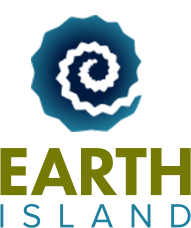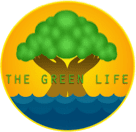HARNESSING THE POWER OF COMMUNITY
We see a world where individuals impacted by incarceration contribute powerfully and fully to the restoration and regeneration of the earth and communities.
OUR PURPOSES
“The Green Life curriculum was developed to teach incarcerated men the importance of a healthy relationship with Earth...the tenets of ecological sustainability (connectedness, wholeness) are similar to the task of personal rehabilitation. The fact that prisoners care about the world so much as to reduce their environmental footprint is remarkable -- especially considering we are treated as disposable by society.”
Juan Haines
Green Life Graduate and Peer Facilitator
OUR ROOTS
In April 2009, a group of men serving life prison terms invited Van Jones, founder of Ella Baker Center for Human Rights and Green For All, to speak at San Quentin. Mr. Jones’ talk on his social and environmental justice work served as a catalyst for collaboration between the prisoners, Angela, and community volunteers to develop The Green Life: a groundbreaking eco-literary and green job preparedness curriculum, striving to share practical pathways for meaningful lives.
In 2018, with funding from the Rose Foundation, we launched the Environmental Leadership Training and Education Program for Formerly Incarcerated Adults:
- Providing grassroots environmental leadership training and research opportunities to Green Life program participants and Peer Leaders.
- Forming partnerships and opportunities within the greater reentry network, local environmental organizations, and education programs in Alameda County to uplift the voices of underrepresented communities most impacted by mass incarceration, environmental pollution, and health disparities.
- Advancing environmental justice and community capacity-building opportunities for people in reentry.
- Developing and establishing relationships between the Peer Educators and community members of the SF Bay area to advance environmental justice.
EDUCATE TO REBUILD
Our Green Life Leadership Reentry Program aims to build on the knowledge gained through our San Quentin program, to give our Peer Leaders, program participants, and their families educational tools to make significant contributions to local environmental concerns and policies. They will better understand how community organizing, storytelling, and media attention can catalyze change for environmental justice groups and communities.
OUR PARTNERSHIP WITH EARTH ISLAND INSTITUTE
Earth Island Institute, a 501(c)3 organization, provides fiscal sponsorship, resources, training, technical assistance, and peer relationships to environmental activists looking for an organizational home and institutional leverage for their work. Becoming a fiscally sponsored project is a strategic decision The Green Life Project made to increase our effectiveness, organizational durability, and greater capacity to do our work.
Earth Island leverages the power of a network of diverse projects, the invaluable knowledge and influence of renowned leaders in the environmental movement, and the track record of a 35-year old organization and experienced staff. They are home to projects at the forefront of the environmental movement utilizing strategies that are responsive to our time’s social, economic, and political realities.


OUR IMPACT
Michael Harris, one of San Quentin’s men who was an integral leader in the formation of Thre Green Life, is now free! Serving over 20 years of incarceration in federal prison on a technicality in his sentencing procedure, he was released won clemency in January 2021. In Michael’s words: “It’s time for a change and The Green Life is the new revolution. I cannot think of any other movement that is crucial in order to sustain our communities, create meaningful lives and save the planet.”
UNITY IN THE COMMUNITY
By partnering with local environmental justice organizations such as West Oakland Environmental Indicators Project (WOEIP), NorCal Resilience Network, YES!, Wholly H2O, Alameda County Climate Action Coalition, Common Vision, Higher Ground Neighborhood Development Corporation, ARISE High School, and others, we facilitate essential partnerships and collaborative projects between the environmental projection and restorative justice sectors.
The connections between mass incarceration, pollution, and poverty are often left unacknowledged and even ignored as low-income communities and communities of color continue to face these issues’ disproportionate burden. Developing effective and accessible grassroots leadership training for returned citizens will help improve community health and affect change and support people’s well-being in reentry, their families, and their communities.

We see a need for more effective and diverse grassroots activism around environmental justice issues by amplifying voices such as those returning home from prison who are finding their communities devastated by toxins and pollution.
